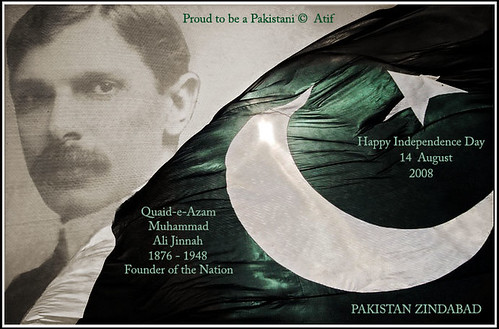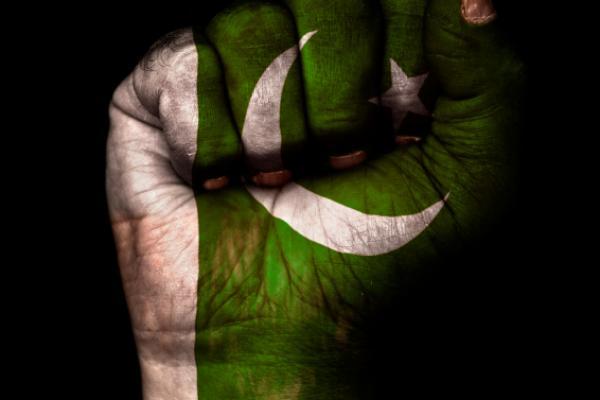Despite of whatever resources we have, despite of what the government is doing, despite of what the international forces are trying to do, let’s play our role to develop our country and to speak up for our land. Let’s learn how to live and help others within current circumstances. Let’s create a sense of Pakistaniat First!
Taking care of our motherland will be in our shoulders (Students) as Quaid –e- Azam Mohammad Ali Jinnah used to say, are the future of Pakistan. And this future is in chaos between politics and religious dogmas, between panic and Terror, between monism and pluralism, between Chair and Leader and between present and future of Pakistan.
We need to ponder on the REAL threats, which are the cause of today’s and tomorrow’s future. We need to redefine our dim strategy and need to develop ‘National Aim’- an aim for Pakistan under which every politician, leader and citizen can put their efforts and intellects for the betterment of Pakistan. I have seen that our elected politician work to complete the five years tenure of the Chair. So that’s why; without national aim we are left far behind. There is a saying.
“A boat doesn’t go forward if each one is rowing their own way.”
A creative leadership is required for the country, who can lead people, who listens, who responds to success and failure and who dedicates his tenure not for party mission but for the vision of Pakistan.
This land does not belong to those politicians who come and go before seasons change or those who during the hard times and trials and tribulations spend their time on expensive vacations, or those who pack their bags, rush to embassies, get the visas stamped and fly overseas. It belongs to those who support their brothers and sisters during tough times, natural calamities and those who shed their blood for their motherland, and to those who suffer and survive of it, it belongs to those to get hurt and die for it and finally it belongs to us!
We can make it more flourish and more prosper only when we are civilized, aware and educated. As Quaid –e- Azam advised students,
“Let me give you this word of warning: you’ll be making greatest mistake if you allow yourself to be exploited by one political party or another… Your main occupation should be – in fairness to yourself, in fairness to your parents, in fairness to the State – to devote your studies.”- (Addressed at Public Meeting Dacca, March 21, 1948).
Let’s be together again and develop our nation, let’s work on our Quaid three magical words ~ Unity , Faith And Discipline. Unity, faith and discipline are the three words which made Jinnah the Quaid –e- Azam. It is blueprint of success which he shared with his nation himself. Unity, Faith and Discipline is the shortest possible distance between dream and its reality which is very much-needed in this time for us. If we follow this we do not have to beg for any aid. We do not have to go to anyone to make Pakistan better. We all want betterment of Pakistan then why are we not working for it with unity. Why we keep on combating as Pathan, Hazara, Punjabi, Seraiki, Baluch, Sindhi, Punjabi, Gilgiti, Muhajir and Chitrali. We all are hard workers then why don’t we have faith on each other? It is fruitless to blame government for everything wrong. It is our country and we have to make it better than the rest then better than the best. To craft a change we have to follow the way which Quaid showed us. We have to follow his principles to compose and rebuild Pakistan. It is three, just THREE word – Unity, Faith and Discipline. I quote Quaid Azam here
“With faith, discipline and selfless devotion to duty, there is nothing worthwhile that you cannot achieve.”
Do not let yourself be a victim. Real threat is not to our bodies, it is to our mind, thoughts and thinking. Education is main power. Get it and go for it. Let the education work to fertile our minds not only enhance our resumes and fill up our pockets. Be aware of the real danger. We need to educate our selves not only in technology but other fields as well, because now, it is a matter of honor, the honor of Sabz Hilali Parcham (Pakistani Flag). Be aware and do not let anyone play with our morals. Real targets are not bodies; actual targets are morals and unity of Pakistan.
May be at some point we belong to different religions, races, colors and cultures but above all we belong to one Motherland – PAKISTAN…!!!
All the crimes and bad things happening around us are not only because of wrong doings of bad ones but more because of the silence of the good ones.





 Pakistan is one of the biggest Muslim states in the world today. The country emerged out of the Indian sub-continent on the map of the world in 1947. The country has a majority of muslim population. Pakistan celebrates its independence on the 14th of August every year.
Pakistan is one of the biggest Muslim states in the world today. The country emerged out of the Indian sub-continent on the map of the world in 1947. The country has a majority of muslim population. Pakistan celebrates its independence on the 14th of August every year.